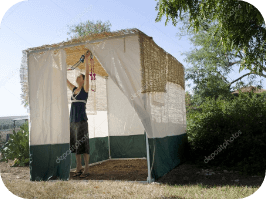
Avi Weiss
The following piece discusses ordination of women, mesorah and touches on the topic of the bat mitzvah.

In response to Yeshivat Maharat’s celebration of its first “ordination as clergy” of three women , the Rabbinical Council of America (RCA) expressed upset. Without offering any particular halakhic criticism, they declared it a “violation of our mesorah .”
Mesorah – tradition – is commonly associated with the giving and transmission of Torah. For some, it is a meta-halakhic concept; That is, regardless of what the halakha says, there is a past tradition that must be taken into account.
Now of course past tradition, consideration of time honored practices, is of tremendous import, as the Torah states, “Ask your father and he will tell you; (Deuteronomy 32: 7) Or as Proverbs writes, “Listen, my child, to the discipline of your father and do not forsake the instruction of your mother.” (Proverbs 1: 8)
But that’s only one half of the equation. One is seriously mistaken to think that mesorah only means that everything we do is cemented in the past. The Talmud makes this point when it records that unlike his predecessors, Rebbe (a Talmudic scholar) did not disclose that tithes be taken on fruits and vegetables grown in Beit She’an, maintaining that for tithing, Beit She’an was outside of Israel . His brothers were incensed: “a place where your ancestors acted prohibitively, will you act permissively?”
Rebbe responded: makom hinihu li avotai le-hit’gader bo– My ancestors have left room for me in which to distinguish myself. (Hullin 6b, 7a) In other words, it’s been left over for the next generation. No generation can do all of the work that is necessary. It is not only the right, but the obligation of each generation le-hit’gader bo- to distinguish itself. Not to distinguish itself in an arrogant sense, but in the sense of continuing the work of not being frozen in the past and then taking halakha to even greater heights. Interestingly, Rebbe used the word le-hit’gader from geder , fence. Although permitting the produce without tithing, Rebbe declares, “I have done so within proper parameters.”
It follows, then, that mesorah is not solely rooted in the past. Rather our mesorah is that, within proper parameters, weought innovate to address the issues of our time and continue the work. This innovation is not straying from mesorah , it is demanded by it. This involves two steps.
The first step is to assess the law and evaluate whether it is in conflict with other central principles of Torah. Consider, for example, the Torah’s position on polygamy, slavery or yefat to’ar , the laws of a female war-captive. These laws seem in conflict with other values of Torah, values like tzelem Elohim – every human being created in the image of God or kavod ha-bryiot – human dignity or kedoshim ti’hiyu – and you shall be holy.
If conflict exists, mesorah includes a second step: a systematic means by which halakha can evolve. The Torah makes this very point when it declares that in every generation, when challenging issues arise, one is to go to the judge of his or her generation. (Deuteronomy 17: 8-9) Mesorah includes a sophisticated network of rabbinic law, some interpretive ( dinin she-ho’tzi’u al darkei hasevara ) and some legislative ( takanot u’gezeirot ). After an extensive, in-depth analysis of the law, new applications may be possible.
When making this analysis it is important to recall the teaching of Rav Kook, ein isur la-hatir et ha-mutar, af al pi shelo nahagu ken – “There is no prohibition to permit the permissible, even though it was not practiced in the past. “Here, Rabbi Kook contradicts the notion that if something has not been done, that that negative becomes a minhag.
This analysis of mesorah is evident when assessing women and halakha. There was a time when a husband could temporarily divorce his wife; There was a time when most women did not study Torah; There was a time when the very same Rabbi Kook argued that women should not have the right to vote. And women were basically shut out of life cycle events: no simhat bat for an infant girl; No bat mitzvah ; No role for women to spiritually lead in a wedding ceremony.
If mesorah only encompassed one half of the equation, the half that insists that what was must continue to be, these practices would still be in place. Yet, today, this is not the case. In the eleventh century, Rabbenu Gershom decreed that no divorce ( get ) can be given against a wife’s free will. In the twenty century, the Hafetz Hayim insured that women should study Torah, and fifty years later Rabbi Soloveitchik led the march to have women study the Oral Law – the Talmud itself. In modern-day Israel, the Religious Zionist rabbinate supports the right of women to vote. I have no doubts that were Rabbi Kook now alive, he would support this right. And today, a simhat bat, bat mitzvah…
Our community is now dealing with the question of whether women can become involved in spiritual leadership, specifically, can they be ordained? It’s an important question as Jews are searching for a spiritual message. What is willingly needed are committed, caring spiritual leaders who can teach and touch these myriads of souls. It does not make sense to only tap 50 percent of our community to assume this role.
The halakhic system unequivocally proclaims that women today can be spiritual leaders. Biblical personalities like Sarah, Miriam, Devorah and Esther served as supreme spiritual leaders. In our century, Sarah Schneirr was the founder of the Beis Yaakov school network in Poland. More recently, Chaya Mushka Schneerson, wife of the Lubavitcher rebbe, served as religious mentor to countless women in Lubavitch leadership.
Today, haredi women lead their schools; A woman heads the Talmud Department at Riverdale, New York’s SARAcademy; Women serve as presidents of Modern Orthodox synagogues; And women are serving as full time members of the clergy in Orthodox synagogues in New York and Chicago.
And women can be ordained. Ordination today is not Siniatic ordination. That line was broken in the time of Hillel the Second in 360 CE. Rather, as the Rema codifies, “ordination ( semikhut) today certifies that one has the ability to be a decisor of Jewish law … with the permission of one’s teacher.” (Yoreh De’ah 242: 14) This means that ordination is the Recognition that a person has mastered a particular area of halakha and can be a decisor of law in that area.
Rabbi Bakshi-Doron, the former Sephardic Chief Rabbi, writes that “women can be the gedolim (the greats) of the generation and serve as halakhic decisors.” (Responsa Binyan Av 65: 5) Throughout history, there have been women experts in Psak, like two late medieval decisors: Marat Osnat, who served as religious head of the Yeshiva of Kurdistan and Marat Chava Bacharach whose knowledge of psak was lauded by her grandson the Havat Yair, Rabbi Yair Chayim Bacharach. In contemporary times, too, Yoatzot Halakha give guidance and direction to women who ask the most intimate questions relating to the laws of family purity.
Today, the debate revolving around women’s ordination is not halakhic but rather sociological. Here, I believe, the Orthodox community is split. While those on the Orthodox right say we are not ready, others in the more open camp, disagree.
The fact that graduations of the first class of Yeshivat Maharat have been placed in synagogues in Montreal and Washington, the fact that a senior student has received a fellowship to serve as a spiritual leader in a synagogue in St. Louis, Missouri, the fact that Yeshivat Maharat students will be interning in other synagogues next year, indicates that we have identified a real need – our community is ready.
In the wake of the inaugural graduation, it is important for the open Orthodox community to have faith in itself. Too often we lack lack confidence in ourselves. Deep down, too many of us do not think we are authentic, and look over our shoulders to the right for legitimacy. It should not be this way. We should feel confident in our positions now shared by many Open Orthodox synagogues and organizations. Indeed, after the RCA issued its statement, the International Rabbinic Fellowship (IRF), the new Modern and Open Orthodox international rabbinic organization, congratulated the women completing the program, wishing them only the best.
Our mesorah does not reject the idea of women’s ordination. Quite the contrary, the mesorah rooted in the past, while emanating light into the future, says quite the opposite.
The time has come to breathe life into the words of Rav Kook he’yashan yit’hadesh ve-he’hadash yitkadesh – “the old will become new, and the new will become holy.” With humility and respect for our detractors: with deep feelings of ahavat Hashem and ahavat Yisrael , with conviction and proud commitment to mesorah , we declare: ki va mo’ed -the time has come.
May these women be blessed.
